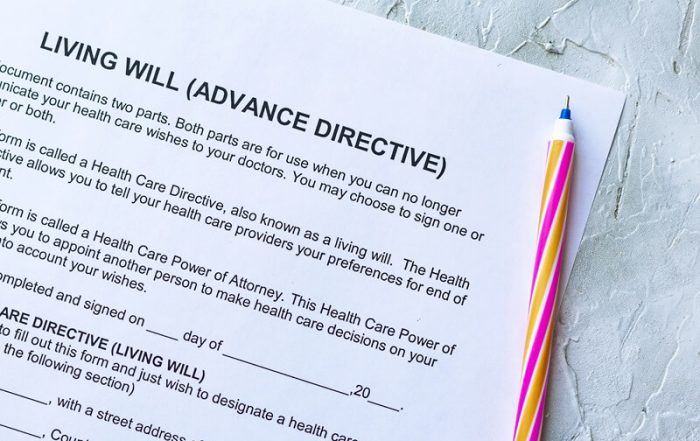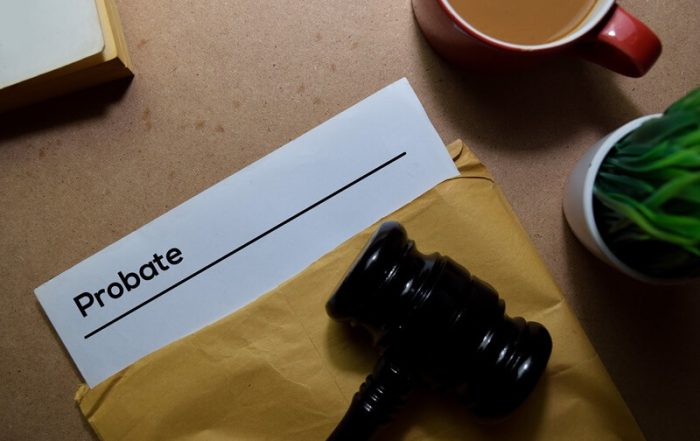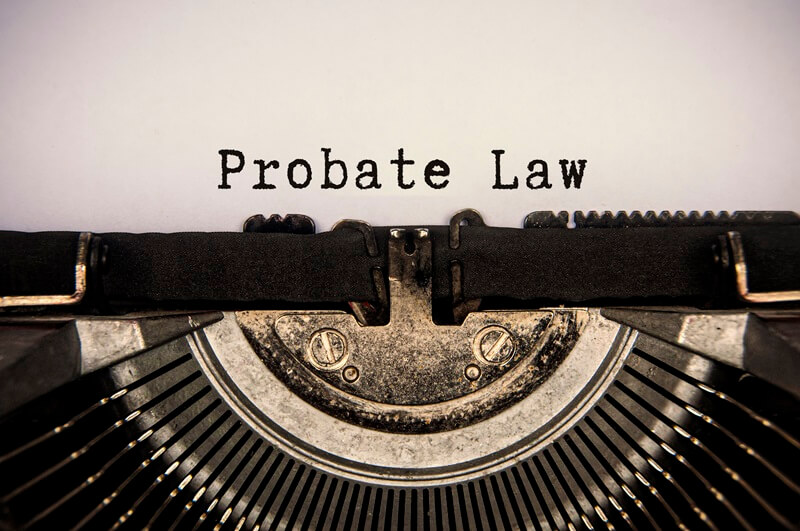How To Start The Los Angeles Probate Administration Process?
How To Start The Los Angeles Probate Administration Process?
Los Angeles probate administration is a challenging journey. It provides a formal process through which a decedent’s estate is managed and distributed. It encompasses the validation of the will if one exists. Without the will, it must follow intestacy law according to state regulations.
This article details the steps involved in filing a probate petition, which is vital to commencing legal proceedings. Additionally, it discusses why engaging with a probate administration attorney in California can effectively navigate the intricate probate laws.

Understanding The Los Angeles Probate Administration
Los Angeles probate administration is often a complex and demanding undertaking. It involves managing the decedent’s estate, including inventory and valuation, and settling debts and taxes. The last step is distributing the remaining assets to beneficiaries or heirs.
In probate law, asset distribution depends on the presence or absence of a will. Intestate succession follows California’s intestacy laws, while estate succession distributes assets based on the testator’s will.
The Superior Court of California, County of Los Angeles, handles probate cases. The court is based on the decedent’s residence, with proceedings held at the county courthouse where they lived. Filing the probate petition in the correct court is vital for an efficient and smooth process.
To start probate, specific documents must be filed. These include the death certificate, will (if any), asset inventory, and a list of heirs and beneficiaries. Each document is indispensable for validating the estate and ensuring proper distribution.
Complying With The Required Documents
Going through the probate process in California necessitates gathering and submitting various documents to the probate court. Ensuring you have the correct paperwork is essential for a smooth and efficient probate administration. Below is a list of critical documentation typically required.
Death Certificate
A death certificate is an official document confirming the date, time, and place of a person’s death. It is essential for probate, serving as proof of death and starting probate administration.
Original Will
The original will outlines a person’s wishes for the distribution of their assets after death. It names an executor or a court-appointed personal representative who manages the estate and carries out the terms of the will. It also designates beneficiaries who will inherit the assets.
Petition For Probate (Form DE-111)
A petition for probate is a formal document filed with the probate court to initiate the process. It requests the court to appoint a personal representative to oversee the administration of the decedent’s estate. Typically, the court appoints the court as the personal representative.
Order For Probate (Form DE-140)
A probate order officially begins the probate process and grants the personal representative legal authority to manage the estate. It includes gathering assets, paying debts, and distributing the estate according to the will or state laws.
Letters Testamentary Or Letters Of Administration (Form DE-150)
These court-issued documents grant the personal representative authority to act on behalf of the decedent’s estate. This document is essential for them to manage and distribute the estate’s assets. It includes the inventory of assets and getting their correct values.
Notice Of Petition To Administer Estate (Form DE-121)
This formal notice informs heirs, beneficiaries, and creditors of the probate proceedings. Its purpose is to ensure that all relevant parties know the petition filing, including the date, time, and place of hearing.
Proof Of Service By Mail (Form DE-131)
This document proves that the Notice of Petition to Administer Estate has been sent to the designated individuals. It is vital to demonstrate compliance with legal requirements regarding notification.
Inventory & Appraisal (Form DE-160)
An inventory and appraisal is a detailed list of the decedent’s assets and estimated values. This document is essential for accounting for all assets, determining their worth for distribution purposes, and calculating potential tax liabilities.
Creditor Claims
Before the distribution of assets to beneficiaries, the estate must address claims from creditors. These claims involve settling any outstanding debts owed by the decedent.
Final Accounting (Form DE-344)
The personal representative prepares a comprehensive report detailing all estate financial transactions. Submitted to the court, it shows responsible management and compliance with legal requirements.
Petition For Final Distribution (Form DE-295)
A petition for final distribution asks the court to allocate the remaining estate assets to the beneficiaries. It initiates the final stage of the probate process, leading to the closure of the estate.
Additional Documents
Here are four additional documents to include:
- Real estate deeds are legal documents confirming ownership of real property. They are essential for determining the decedent’s property holdings.
- Bank statements furnish a record of financial transactions. These documents help identify and evaluate the decedent’s bank accounts and assets.
- Stock certificates are evidence of ownership in corporations. They are essential for determining the decedent’s investment holdings.
- Vehicle titles establish motor vehicle ownership. These documents are necessary for transferring vehicle ownership or determining its value within the estate.
Accurate collection and submission of documents are essential for complying with California probate requirements and ensuring a smooth process. Consulting a probate attorney can help you navigate the complexities and manage paperwork effectively.
Knowing These Factors Before The Petition
Filing a probate petition commences the legal process of administering an estate and appointing a personal representative. Accurate petition submission, including fees and deadlines, is essential for a smooth process. Here is some vital information to know before proceeding.
The Duties Of The Personal Representative
The personal representative, appointed by the probate court, oversees the estate’s administration. This individual manages assets, settles debts, and distributes assets based on the will or intestacy laws.
Jurisdiction Of The Probate Court
The appropriate local probate court handles this case. In California, probate cases typically fall under the jurisdiction of the Superior Court in the county where the decedent resided.
Commencing The Probate Process
The process starts with filing a petition in the probate court. This document outlines essential details about the decedent, their heirs, and beneficiaries. Complete specific forms accurately and submit them along with the petition.
Associated Fees & Deadlines
Filing the probate petition involves associated court fees. Meeting deadlines for filing petitions and documents is essential to avoid delays in the probate process. Successfully navigating the probate process requires understanding the roles of the personal representative and the probate court.
It is essential to file the petition accurately and on time. Understanding these key elements helps individuals start the process with greater confidence.
Navigating The Los Angeles Probate Administration
The probate administration in Los Angeles is a multifaceted legal process requiring meticulous attention to detail. Several critical steps are involved in ensuring the orderly and efficient management of a deceased person’s estate. Here’s a brief overview:
Initiate Probate
Probate manages a deceased person’s estate. In Los Angeles, it begins by assessing the need for probate. If necessary, file a petition with the probate court detailing assets, liabilities, and beneficiaries and requesting a personal representative.
Appoint Personal Representative
The probate process starts with appointing a personal representative who manages the estate and handles legal and financial matters. Appointed by the court, the representative must act in the estate’s and beneficiaries’ best interests.
Notify The Creditors
After an appointment, the personal representative must notify creditors via newspapers and direct communication, setting a claim deadline. It ensures all debts are addressed before distributing the estate’s assets.
Conduct Inventory & Appraisal Of Assets
A critical component of probate administration is the comprehensive inventory and valuation of the decedent’s assets. The personal representative must catalog all assets, including real estate, accounts, and personal property. This inventory ensures all assets are accounted for and appropriately assessed in the probate process.
Manage Estate Debts & Taxes
The personal representative handles the estate’s debts and taxes, including paying bills and filing tax returns. Effective financial management is essential for protecting assets and ensuring timely distribution to beneficiaries.
Distribute Assets
After settling debts and taxes, the representative distributes assets per the will or California intestacy laws. Remaining assets are distributed to the beneficiaries entitled to receive their inheritance.
Close The Estate
The final stage of probate involves closing the estate. The representative files a final accounting with the court and, once approved, is discharged from duties. The estate is closed, and the remaining assets are transferred to beneficiaries.
Appointing a personal representative, notifying creditors, and appraising assets are vital for probate administration. These actions ensure the process is orderly and equitable and help manage the estate efficiently in Los Angeles.
Achieving Success With Los Angeles Probate Attorneys
 Probate administration can be complex and time-consuming. Los Angeles Probate Attorneys simplify the process by managing assets, settling debts, and distributing to beneficiaries. Our competence in meeting deadlines and legal requirements ensures a smoother experience.
Probate administration can be complex and time-consuming. Los Angeles Probate Attorneys simplify the process by managing assets, settling debts, and distributing to beneficiaries. Our competence in meeting deadlines and legal requirements ensures a smoother experience.
A skilled Los Angeles probate administration lawyer offers strong court representation and handles disputes through litigation and negotiation. We provide compassionate support and keep clients informed throughout the process. This approach improves your chances of managing your loved one’s estate effectively and respectfully.
By collaborating with us and implementing these tips, the chances of a successful administration are possible. Our skills and experience will guide you through every step, ensuring the efficient and respectful handling of your loved one’s estate.
Summary
Starting probate administration in Los Angeles involves a myriad of tasks. These include filing a petition with the local court, managing the decedent’s assets, and ensuring compliance with legal requirements. Key steps also include appointing a personal representative, notifying creditors, and inventorying and appraising assets.
Adhering to California’s probate requirements, such as a death certificate, will, and asset inventory, is indispensable for a smooth process. A competent team of Los Angeles probate attorneys can ease the process with proper guidance and support.







